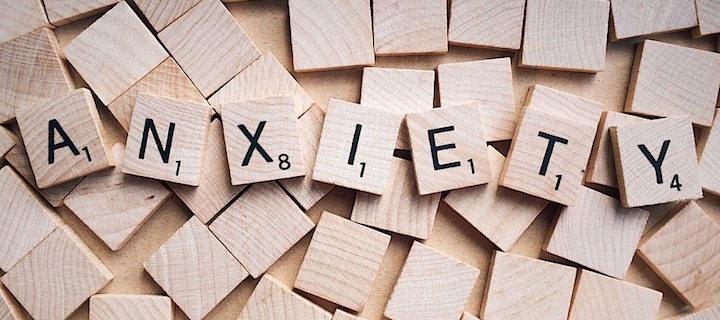A current documentary that was made for PBS is entitled “It’s ‘Just’ Anxiety”, and this movie couldn’t have been given a more ironic title. Whenever you do a news search on teen anxiety, a lot of stories will pop up, because teenagers are suffering from it now worse than ever. It was even a cover story in Time last year, with the headline “Why The Kids Are Not Alright.”
Of course high school is a time in your life where jitters are normal, and tests, dating, social activities, and studying to get good grades, along with the upcoming responsibilities of adulthood, are just a handful of factors that can contribute to teen anxiety. But this generation of teens may be feeling it more acutely than ever before due to several factors that the previous generations haven’t had to deal with, like the constant barrage of social media.
As one teenager told Time, “We’re the first generation that cannot escape our problems at all. We’re getting this constant pressure, from our phones, from our relationships, from the way things are today.”
In 2015, Time reported that 3 million teenagers had “at least one major depressive episode” that year (30% girls, 20% boys) and that 6.3 million teens have anxiety disorder, according to the Department of Health and Human Services. But these figures don’t include many teens who don’t report their anxiety to anyone and remain undiagnosed.
One of the definitions of anxiety is fear without object. This means that the fear is not cause by any identifiable threat, but by abstract ideas, such as not getting into college when your grades are fine or the fear of falling up. Often times the amount of fear experienced becomes excessive due to worst case scenario thinking. Cognitive behavioral therapy (CBT) is a type of psychotherapy that helps one recognize what is anxiety versus what is an actual likely outcome.
The mental health website Hey Sigmund calls anxiety “a mind hog” that can indeed consume your thoughts and emotions. It’s important to know that anxiety is very common: one in five suffer from it, thus there is no need for embarrassment. It’s also important to know that a certain level of fear and anxiety is important to have; we wouldn’t be human without it. Where anxiety gets out of control is when our brains get overprotective.
When anxiety hits, it affects your breathing, and your heart beat. You can feel dizzy, like you’re ready to pass out, and it can also cause awful stomach problems. One of the biggest differences today is that teens suffering from anxiety are more open about it than ever. This is thanks to social media, where teenagers are more vocal and articulate about their experiences and precisely what they’re going through.
While doing a Google search certainly will never be a substitute for getting in-person help with a therapist or counselor, there are some easily identifiable recommendations for teens who need help getting a grip on anxiety. The first steps are acknowledging your feelings and knowing the signs, like if you’re anxious all the time for no reason, or if you worry too much about everyday life activities.
Many who suffer from teen anxiety also come up with their own ways of dealing with it and calming their minds. Among WebMD’s list of ways to cope with teenage anxiety, one recommendation is “starting your own relaxation program.” One of the tools you can learn in therapy is mindfulness, which keeps you in the now, where you’re not in danger, and have no reason to be afraid.
While many symptoms of anxiety are common for teens and adults, such as creating your own ways of talking through your thoughts and ways to slay your own anxiety-creating dragons, the process is intensely personal for everyone. Even celebrity Emma Stone has suffered with anxiety since she was a child. (Lately many celebrities like Stone have been publicly coming forward about their struggles with mental health.)
As the actress told Rolling Stone, she wrote a book about her fears when she was a child, entitled I Am Bigger Than My Anxiety, and she visualized her anxiousness as a green monster on her shoulder. The more worry it whispers in her ears, the bigger it grows. “If I listen to it enough, it crushes me,” she said. “But if I turn my head and keep doing what I’m doing, then it shrinks down and fades away.”
This of course is only one step, and battling and treating teenage anxiety can be a tough task, especially in today’s day and age where being a teenager may indeed be more complicated than ever. At least a lot of teenagers suffering from anxiety who need treatment now know it’s not “just” anxiety, and they’re certainly not alone in their fight.
Anxiety can be too tough to deal with alone. It can be hard to see and know when and how to ask for help. Just know you’re not alone. Help is freely available and you are not the only one looking for it.
Here are some suggestions to get started in learning to deal with teen anxiety:







